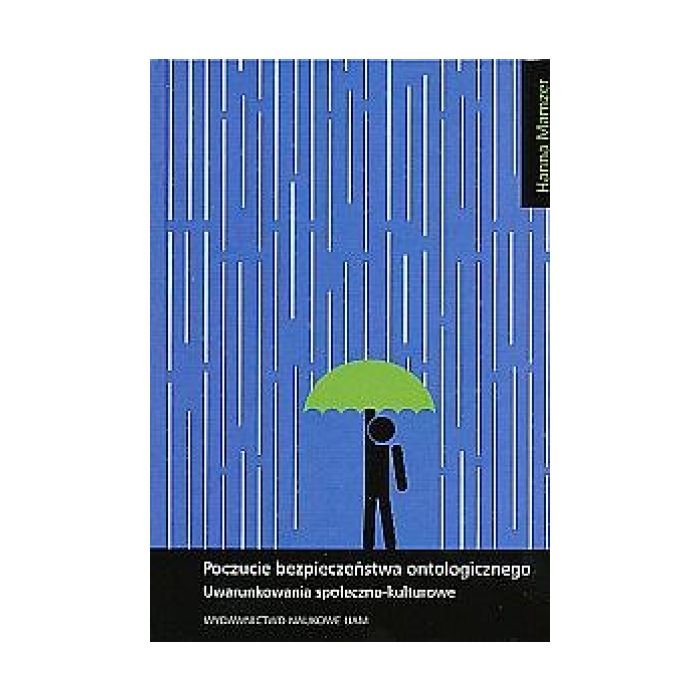Poczucie bezpieczeństwa ontologicznego. Uwarunkowania społeczno-kulturowe
This book is devoted to the process of developing the sense of ontological safety, which is always conditioned by the socio-cultural context, in which the subject {defined as an individual or as a society) functions. The characteristics of this context are the most important elements impacting a person's attitude to the wider social reality surrounding him or her. My work examines contrasts in the ontological safety provided by modern societies compared to post-modern societies. A. Giddens (2002) proposed an understanding of ontological safety which is defined as: the conviction of the subject about the predictability of the external world, based on routine actions performed by the participants of a given culture. In fact, the process described here is only possible in the traditional societies, not touched by the transitions connected with development of post-modernity, which is characterised by enormous relativism and changeability. Traditional societies, whose functions have always been strongly connected with the rhythm set by the world of nature, did not tolerate breaking or even deviating from the rules or other expressions of individualism. Taking into account the nature of post-modernity, I propose to define ontological safety as the strengthening by predictability of cultural events (which is created based on the routine activities performed by the members of a given culture) the conviction that it is possible to trust, most of all oneself and one's skills, (but also other subjects active in the social life), as well as the adequacy of their application in the social life to perform instrumental tasks.
Wstęp
Rozdział 1
Socjologiczny status pytania o bezpieczeństwo ontologiczne 1.1. Bezpieczeństwo ontologiczne a bezpieczeństwo epistemologiczne
1.2. Reprezentacja tekstualna: zwrot lingwistyczny
1.3. Reprezentacja wizualna: zwrot piktoralny
1.4. Pewność poznania a elementy kultury masowej
Rozdział 2
Eksplikacja pojęcia bezpieczeństwa ontologicznego
2.1. Zmiana jako wartość a sens obietnicy
2.1.1. Zmiana oczekiwana a bezpieczeństwo ontologiczne
2.1.2. Zmiana nieoczekiwana a bezpieczeństwo ontologiczne
2.2. Ontologiczne bezpieczeństwo w cywilizacji ryzyka
2.3. Ontologiczne bezpieczeństwo a przemoc wobec bliskiego
2.4. Zaufanie a bezpieczeństwo ontologiczne
2.5. Umowa a bezpieczeństwo ontologiczne
Rozdział 3
Polemika wokół problematyki pojęcia bezpieczeństwa ontologicznego
3.1. Geneza: biologiczne czy kulturowe źródła poczucia bezpieczeństwa ontologicznego
3.2. Umiejscowienie: podmiotowo a wspólnotowo zlokalizowane poczucie bezpieczeństwa ontologicznego
3.3. Dynamika poczucia bezpieczeństwa ontologicznego
3.4. Jak utrzymać bezpieczeństwo ontologiczne?
3.4.1. Nowa propozycja bezpieczeństwa ontologicznego
3.4.2. Postawa oporu hermeneutycznego, dotrzymanie obietnicy, autorytet
Zakończenie
Bibliografia
Ontological safety. Socio-cultural context (Summary)
| Detailed information | |
|---|---|
| Publication Version | printed |
| Format | 17,0 x 24,0 |
| Title (EN) | Ontological safety. Socio-cultural context |
| Type of publication | Monografia |
| Edition | I |
| Series | Socjologia nr 58 |
| ISSN | 0554-8225 |
| ISBN | 978-83-232-1948-4 |
| Number of pages | 322 |
| Type of binding | paperback |




